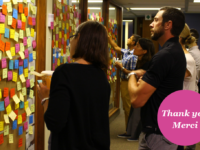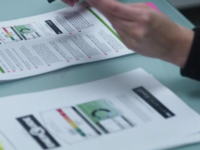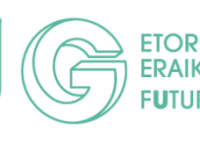This project uses text analytics to help the UK civil service derive value and manage risk from high volumes of unstructured digital information that has accumulated over the decades. We are also exploring the potential of technology to support real-time categorization and connect staff working on similar challenges across organizations to improve productivity and outcomes.
Innovation Tag: Public Policy
Le LabZéro est un laboratoire d’innovation publique qui poursuit des objectifs “zéro”, comme “zéro personne à la rue”. Afficher une forte ambition permet de mobiliser les énergies et d’encourager la créativité. C’est un lieu tiers, piloté par l’État régional et animé par une équipe d’horizons différents, qui rassemble tous les acteurs concernés et volontaires pour trouver de nouvelles réponses aux questions de politiques publiques.
The OEE established a Social Innovation "UnLab" (SIU) to test an embedded innovation model and amplify energy efficiency policy and service impacts in Canada. The SIU creates value for energy efficiency stakeholders in three ways:
Building relationships and capacity for energy efficiency policy and service innovation;
Generating evidence and collective learning by co-creating and testing insights and interventions;
Amplifying impacts by scaling learning and implementing what works.
A first of its kind (in our context), cross-jurisdictional partnership between three levels of government to research, co-design and test prototypes with citizens to inform and improve the experience and uptake of home energy efficiency labeling and reporting.
The core team was comprised of representatives from Natural Resources Canada’s (NRCan) Office of Energy Efficiency (OEE), the Province of Alberta’s CoLab, and the City of Edmonton with service design support from Situ Strategy.
In Argentina, public servants are getting promoted according to their innovation level. To support this initiative, The Design Academy for Public Policy teaches public servants how to innovate. At the Academy, we teach the core skills and innovative tools public servants need to acquire in order to solve future public challenges, and at the same time empowers them to be part of a cultural change within the government.
The challenge the city Ljubljana wanted to address was how to approach young people who have ideas. What works well, and what could be even better? City Incubator is a programme for the implementation of the ideas of young people in Ljubljana. It is a sustainable tool for implementation and co-financing of local youth initiatives. Individuals or groups may put ideas forward and in the frame of the programme, they receive professional support for the fine-tuning, and financial support for the…
For the first time in India, over 100 million citizens have been conferred a legal right to grievance redress. The Bihar Right to Public Grievance Redressal Act also provides a no-wrong door policy (every complaint compulsorily received in any centre in Bihar or digitally and acknowledged) and power parity between citizens and public authority (specially mandated independent, quasi-judicial officers provide a one-stop solution after weighing evidence from both sides).
ProZorro.Sale is an electronic auction system aimed at transparent sales of state and local government assets. It involves a central database that conducts auctions and stores all the information about the transaction and commercial platforms connected to the database via Application Programming Interface (API). After the transaction all the information becomes public.
The Provincial Council of Gipuzkoa presents the program entitled Etorkizuna Eraikiz (Building the Future) as an innovative program for a more open and collaborative governance. Etorkizuna Eraikiz incorporates public deliberation with the citizenship for the design of public policies, ensuring the effectiveness, efficiency and plurality of this participation. The program consists of an active experimentation exercise to develop the future of the territory.
SPID (Sistema Pubblico di Identità Digitale, or Digital Identity System) is a solution for accessing public administration online services through once-only digital identity (user & password) generated by private Identity Providers. It can be used from any device (PC, tablet & smartphone) by citizens. SPID aims to improve the relationship between citizens & the public administration by expanding the digital approach in using public services.







